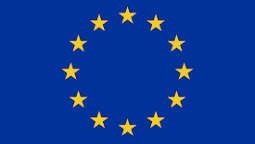The Science Based Targets initiative (SBTi) has unveiled a draft update to its Corporate Net Zero Standard, currently open for public consultation until June 2025. This revision follows an announcement in February outlining the need to provide businesses with clearer and more practical guidance for decarbonisation. The aim is to address persistent challenges, particularly around Scope 3 emissions, and to integrate the latest climate science and regulatory changes. By engaging with business leaders and stakeholders, SBTi hopes to create a more robust and user-friendly framework for setting and achieving net zero targets.
A central focus of the proposed changes is the treatment of Scope 3 emissions, which cover indirect emissions across a company’s value chain and often prove the most difficult to manage. The new draft allows companies greater flexibility, such as setting targets for green procurement and emissions linked to revenue generation, rather than insisting solely on absolute reductions. By encouraging action where businesses have the most influence, typically with major suppliers or high-emission activities, the revised standard seeks to maximise impact while acknowledging the complexity of decarbonising global supply chains. As such, says Alberto Carillo Pineda, Chief Technical Officer at SBTi stated that “The draft standard reflects lessons drawn from thousands of businesses worldwide.”
The draft also introduces recognition for corporate investment in Beyond Value Chain Mitigation (BVCM), enabling businesses to gain formal credit for supporting climate finance initiatives and carbon removal beyond their direct emissions. Interim targets for carbon removals are also proposed, helping organisations address residual emissions more systematically. These additions signal a broader, more integrated approach, encouraging companies to support climate action both within and outside their immediate operations, while still prioritising direct emissions reduction.
To enhance transparency and accountability, the revised standard requires companies to report progress against their targets in a standardised way, making it easier for stakeholders to monitor and compare performance. Importantly, the draft also proposes simplified requirements for smaller firms and those in developing economies, lowering barriers to participation and promoting greater inclusivity in the global drive towards net zero. The ongoing consultation invites input from a wide range of voices, ensuring that the final standard will reflect practical insights and support businesses of all sizes in their sustainability ambitions.


 Europe
Europe








